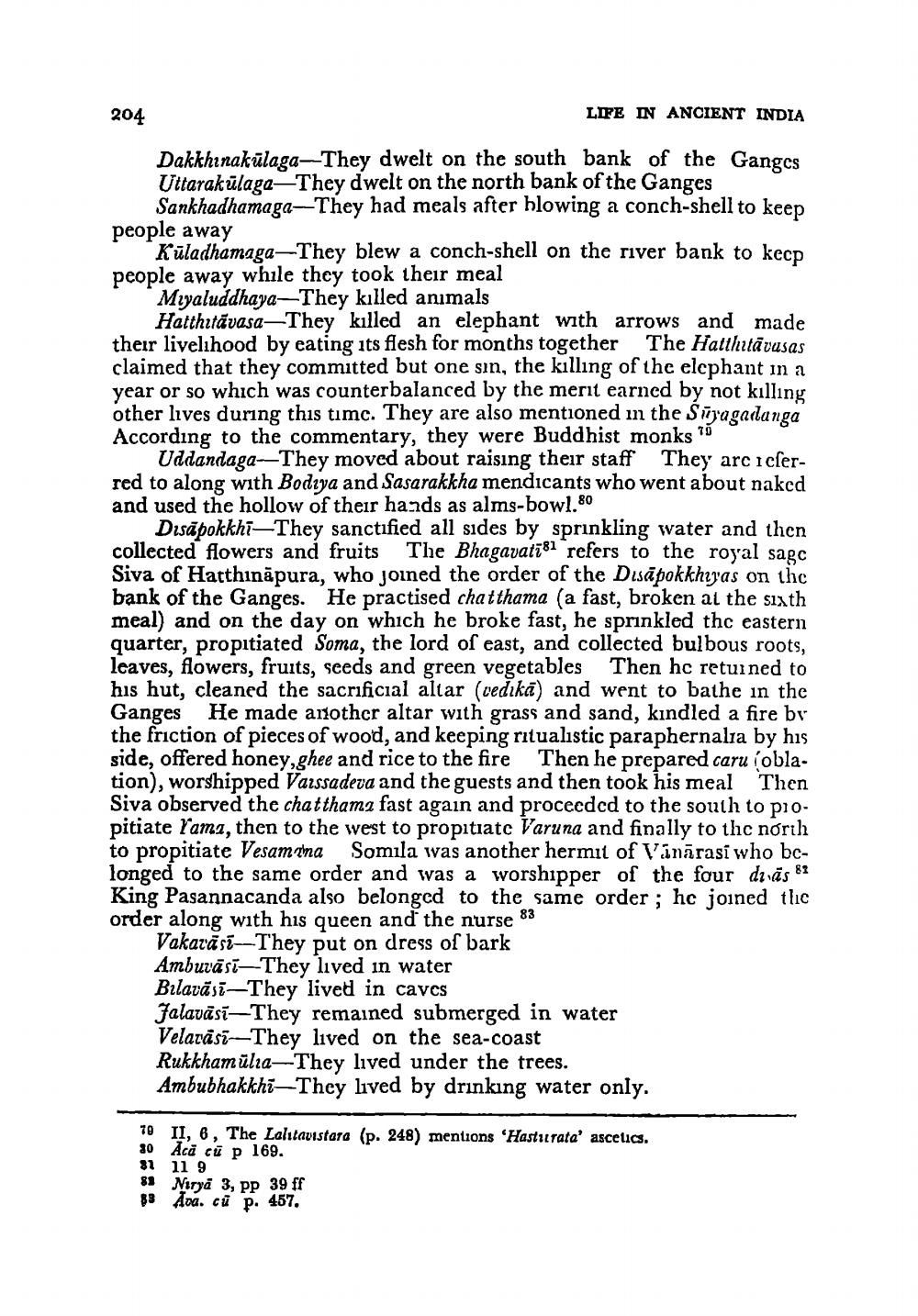________________
204
LIFE IN ANCIENT INDIA
Dakkhinakülaga–They dwelt on the south bank of the Ganges Uttarakülaga—They dwelt on the north bank of the Ganges
Sankhadhamaga-They had meals after hlowing a conch-shell to keep people away
Küladhamaga—They blew a conch-shell on the river bank to keep people away while they took their meal
Miyaluddhaya—They killed animals
Hatthitāvasa—They killed an elephant with arrows and made their livelihood by eating its flesh for months together The Hatthitarasas claimed that they committed but one sin, the killing of the elephant in a year or so which was counterbalanced by the merit earned by not killing other lives during this time. They are also mentioned in the Shyagarlanga According to the commentary, they were Buddhist monks 10
Uddandaga--They moved about raising their staff They arc 1 cserred to along with Bodiya and Sasarakkha mendicants who went about naked and used the hollow of their hands as alms-bowl.80
Disāpokkhi—They sanctified all sides by sprinkling water and then collected flowers and fruits The Bhagavatī81 refers to the royal sage Siva of Hatthinapura, who joined the order of the Disāpokkhiyas on the bank of the Ganges. He practised chatthama (a fast, broken at the sixth meal) and on the day on which he broke fast, he sprinkled the eastern quarter, propitiated Soma, the lord of east, and collected bulbous roots, leaves, flowers, fruits, seeds and green vegetables Then he returned to his hut, cleaned the sacrificial altar (cedika) and went to bathe in the Ganges He made another altar with grass and sand, kindled a fire br the friction of pieces of wood, and keeping ritualistic paraphernalia by his side, offered honey,ghee and rice to the fire Then he prepared caru (oblation), worshipped Varssadeva and the guests and then took his meal Then Siva observed the chatthama fast again and proceeded to the south to piopitiate Yama, then to the west to propitiatc Varuna and finally to the north to propitiate Vesamaha Somila was another hermit of Vānārasi who bclonged to the same order and was a worshipper of the four divās 83 King Pasannacanda also belonged to the same order; he joined tlic order along with his queen and the nurse 83
Vakarā sī--They put on dress of bark Amburāsī— They lived in water Bilavāsī—They lived in caves Jalavāsī—They remained submerged in water Velarasi--They lived on the sea-coast Rukkhamūlia-They lived under the trees. Ambubhakkhi— They lived by drinking water only.
70 II, 6, The Lalılavistara (p. 248) mentions 'Hasturata' ascetics. 30 Acă cü p 169. 81 11 9 81 Nitya 3, pp 39 ff 88 Aoa. cû p. 457.




